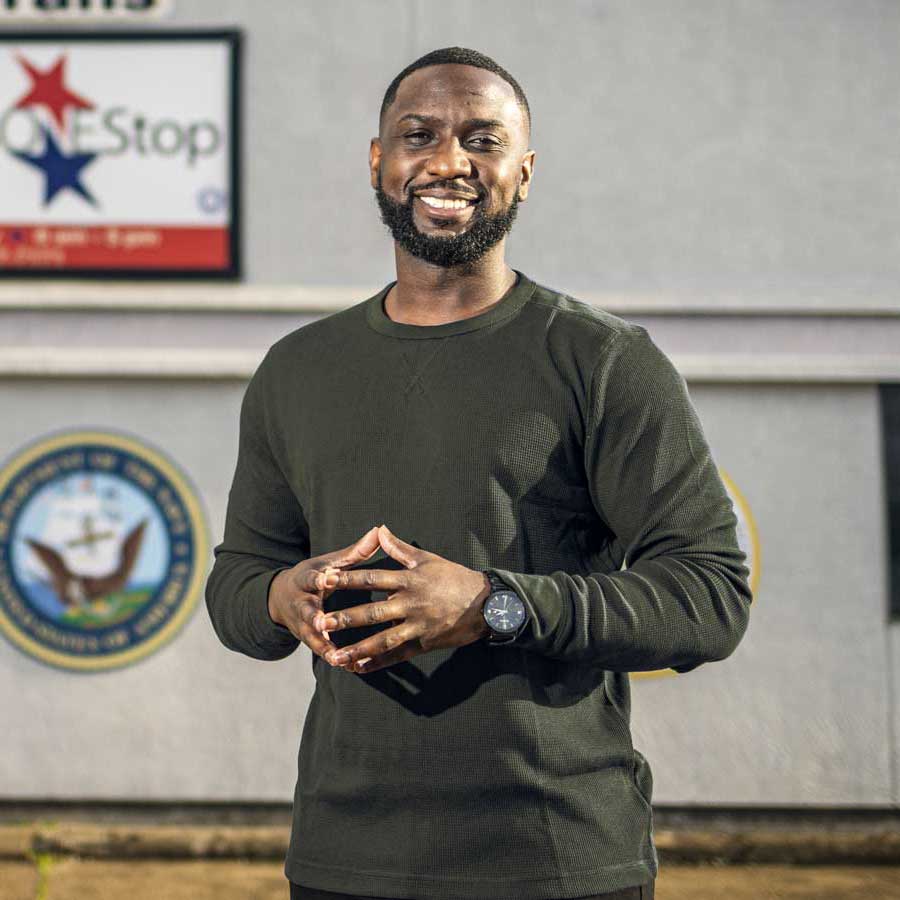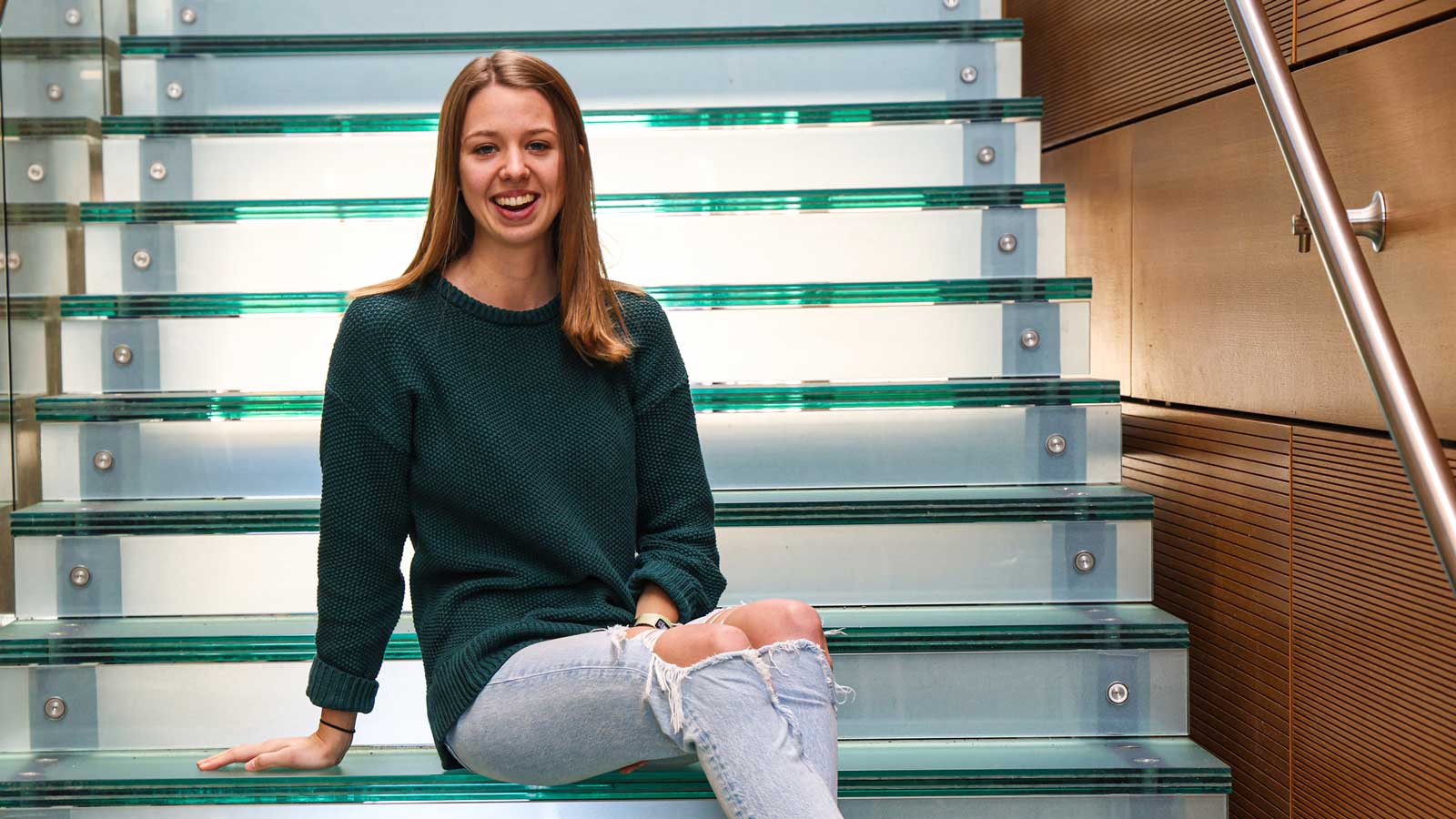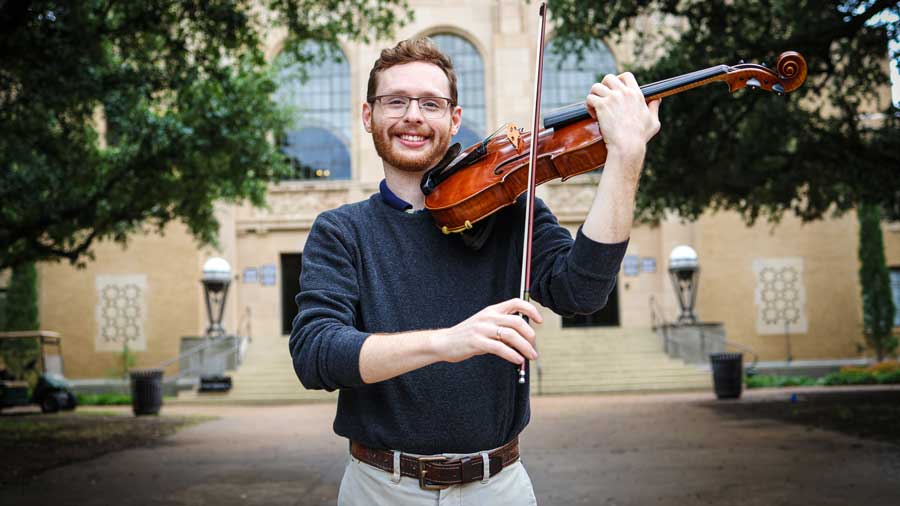Learning By Serving
Service is part of a Christian call to engage with the needs of the world. Discipline-based service connects the technical and professional skills that Baylor students learn in the classroom with the needs of Waco's community and beyond.
Students at Baylor have a myriad of opportunities to serve in Waco and across the globe through churches, student organizations and project-based volunteer events. In addition, students have the opportunity to put their academic interests to work on a range of mission trips. Rather than compartmentalizing going to class and doing homework as separate from students’ engagement with their community, Baylor University challenges and inspires its students to consider how their professional callings and a call to use their gifts and talents to serve others might be blended in an environment of top-tier academics.
Across campus, academic-driven service opportunities connect Baylor students’ educational experiences with real-world needs in the community. Students gain a deeper knowledge in their field of study by applying the skills they learn in the classroom in service to others.
Serving Those Who Served
Baylor Law School has nearly a dozen clinics and events that serve a variety of populations in the community. One of these is the Veterans Clinic, which allows law students to meet veterans in Waco and help address their legal needs.
The clinic is a hybrid of traditional clinical legal education, legal advice clinics and a pro bono referral service. The Veterans Clinic alongside its long-time partner, the Heart of Texas Veterans One Stop, organizes monthly free legal advice clinics. Students and faculty meet veterans to advise them on non-criminal legal issues of all kinds, including family law, real estate, bankruptcy, landlord-tenant, probate and estate planning.
The legal advice clinics also are an exercise for Baylor Law students in developing their client counseling skills. Josh Borderud, B.A. ’01, M.A. ’03, J.D. ’09, directs the Law School’s Clinical and Pro Bono Programs. Borderud noted that students gain important professional skills in the clinic.
“Our students develop a greater confidence in their ability to have a conversation about a client’s legal issue in the initial interview. This is a skill that requires patience, empathy and respect while asking direct questions.”
Baylor Law students interview veterans and then accompany a volunteer attorney in the advice and counsel session. If the veteran meets income qualifications, the case is referred to a local attorney on a pro bono basis or taken in-house for students to work on under attorney supervision.
Student service in the clinics is on a volunteer basis. Borderud praised the service of participants.
“While pro bono clinical work is encouraged at Baylor Law, our student volunteers are going above and beyond what is required by the curriculum. Many of our law student volunteers served in the military or have a relative or loved one who served.”
One such student is Rhasean Stephens, a second-year law student and captain in the United States Army from El Paso, Texas.
“Being able to connect with veterans speaks to my skill set in understanding their stories, their lives, what they’ve been through. Serving those who serve this country really speaks to my heart and to the mission of public service.”
For Stephens, his time in the clinic has a powerful impact on how he approaches his study of law.
“Everything that I learned may possibly affect my client, and so it allows me to take a different perspective and approach to how I engage the material in class.”
Service to veterans in the clinic is only one chapter in a lifetime of service for Stephens. As a future judge advocate for the Army’s Judge Advocate General’s Corps, Stephens will continue to serve active duty service members and veterans throughout his career.
“I think I’ve always had a heart for public service, a heart for helping other people. Volunteering in the clinic definitely reemphasizes that. It’s such meaningful work, you meet great people and you’re able to help and connect with people in ways that I don’t think you would typically do if you were to work in a corporate law office.”
The Veterans Clinic celebrated its 10-year anniversary in September. In October, the clinic reached an impressive milestone of more than 2,000 veterans served.
Big Returns for Service
Every spring, Baylor’s Accounting Department provides tax preparation assistance to low-income taxpayers through the Volunteer Income Tax Assistance (VITA) program. VITA is a nationwide program sponsored by the IRS. It allows lower income taxpayers to have their tax returns prepared for free. The past several years, Baylor’s Accounting Department partnered with University High School in Waco, which hosts the event through the duration of tax season.
“I really enjoyed the fact that I was helping people with the technical ability that I had, and I hadn’t really seen that in accounting before.”TESSA HARBECKE
Accounting students in their first tax course get experiential learning as they help prepare real returns and interact directly with clients.
Tessa Harbecke is a junior accounting major from Sycamore, Illinois, who volunteered for VITA last spring.
“I really enjoyed the fact that I was helping people with the technical ability that I had, and I hadn’t really seen that in accounting before. I think an accountant is helping people, but I think I saw for the first time through VITA how it could be used to help the community and people.”
Students who volunteer to participate in VITA are on site five times from the last week of January through April 15. Volunteering for the program allows students to practically apply their skills, an opportunity the classroom does not typically afford.
“Studying tax tends to be very reading heavy, and a lot of the classwork involves reading scenarios to work through,” Harbecke said. “But when I got to do VITA, I was working through the financials of real people and their real life experience. It was really cool to see it come to life.”
Tim Thomasson, B.B.A. ’91, M.Tax ’92, has spearheaded the program’s efforts for the past three years. He said students learn a lot over the course of their volunteering that cannot be easily taught. For most students, this is the first time they are interacting with clients, and they have to learn how to receive feedback and communicate complex information clearly.
“The other thing students learn,” Thomasson said, “is that some of these people are getting a lot of refunds. There’s a lot of economic benefits that the government provides lower income people through the tax return process, and so our students get to see the relief and joy that certain taxpayers have when they’re going to get money back. That’s going to help them, and they might rely on that money. That’s hard to simulate in the classroom.”
Last year the VITA program completed over 500 tax returns with well more than $1 million in refunds for individuals in the community.
VITA shapes the academic and professional goals of students who volunteer, as well.
Harbecke said of her experience, “VITA has encouraged me to seek out ways to do things like this in the community. VITA opened my eyes to places where I can serve the community with my academic background rather than just through my church or what we think of as traditional volunteering opportunities. Now I can take my academic training and put that towards building up the community.”
Making a Joyful Noise
The Baylor University String Project makes learning to play an instrument accessible to young people in Waco while giving Music Education students at Baylor a platform to develop as instructors. The program offers low-cost group instruction to students from third to 12th grade, mitigating the barrier of cost that can make learning to play an instrument out of reach.
Grade school students enrolled in the program learn how to read music and play violin, viola, cello or bass. Classes are taught by Baylor students studying music education.
This is Ben Cantrell’s sixth year teaching for the String Project. Cantrell, who hails from McKinney, Texas, completed his bachelor’s in music education last spring, and he is now in the first year of a master’s degree to study viola and performance.
Teaching in the program has developed Cantrell’s teaching philosophy.
“Talk less, play more. It is so easy to lose kids, especially little kids, when you just start talking. Everyone’s here to play. They have this weird wooden box that makes all these weird noises, and they just want to figure their instruments out. The only way they figure them out is by practicing and by experiencing those things. My biggest goal in the classroom is to give students the structure and the comfort to be able to develop their own voices as musicians.”
For many Baylor music students teaching in the program, the String Project is a unique opportunity to teach beginning string students in a classroom setting for the first time. This hands-on experience prepares music education students for the teaching workforce.
Michael Alexander, Ph.D., director of the Baylor University String Project, notes that Baylor students who participate in the program show tremendous strides in their teaching skills.
“I see student confidence and poise in front of a group grow exponentially. Their organization and classroom management skills are developed and polished way before they start their student-teaching semester out in the public schools. It is real life, in a safe space.”
Cantrell said teaching for the String Project amplified lessons he learned in the classroom by providing a setting for him to implement his training.
“There were occasions where I literally learned something earlier in the day and then got the chance to directly begin practicing it right away, which for teaching is invaluable. It gave me a leg up and a lot more comfort going into that public education system.”
As Cantrell notes, music has the capability of bringing people together, and the Baylor University String Project invites young people in Waco into that.
“This program is so important because it reduces the economic barrier that can prevent children from accessing music. And the program has taught me so much as a teacher about making music accessible and fun in the classroom. Music is incredibly unifying and reaches so many people — every child should have access to that.”
Semester after semester, programs across campus are encouraging students to apply what they study in the classroom to the practical needs of their community. The impact of service opportunities goes far beyond connecting educational studies with the world beyond the classroom. These discipline-driven service opportunities shape the way Baylor students use their education and professional training. As they apply their skills to find solutions to real world problems, students are discovering how to serve their community in practical and creative ways with their Baylor education.
City Proclamation:
September 13 Declared Baylor 58:10 Project Day
The second annual 58:10 Project gathered students, faculty, staff and Waco community members to pack meals to fight food insecurity in the Waco area.
Organized by Baylor University’s Department of Accounting and Business Law, more than 700 volunteers prepared 101,592 meals in three and a half hours. The department partnered with Caritas of Waco, who distributes the meals to families in need in Waco and surrounding communities.
The City of Waco showed support for the cause, with City Councilman Josh Borderud, B.A. ’01, M.A. ’03, J.D. ’09, City Attorney Jennifer Richie and City Secretary Michelle Hicks in attendance. Borderud recognized the event’s contributions to promoting human, community and societal flourishing by officiating a city proclamation declaring September 13 as the Baylor 58:10 Project Day.
Volunteers loaded food and vitamins into packages with supplies provided by the Pack Shack, which were then boxed and delivered to Caritas. The final meal count more than doubled compared to the inaugural event in 2021, which packaged almost 50,000 meals in two hours.
The project’s name and mission come from Isaiah 58:10, which states, “You must actively help the hungry and feed the oppressed. Then your light will drive out the darkness, and your darkness will become like the middle of the day.”


